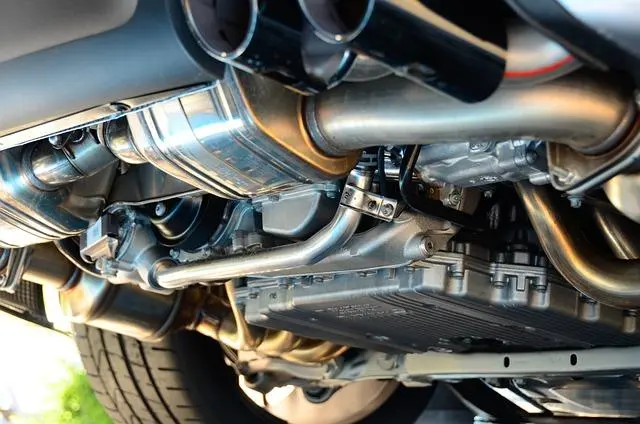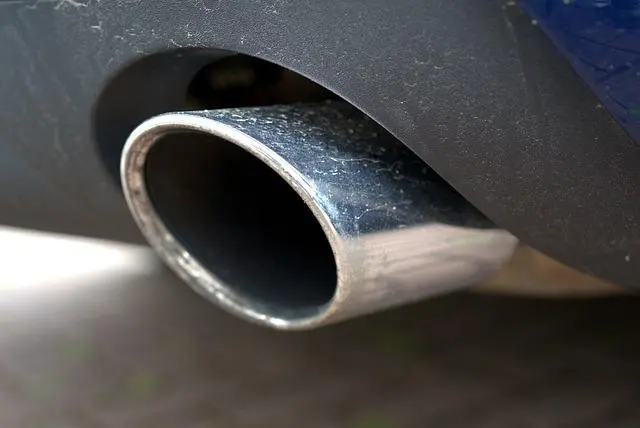Catalytic Converters: Cleaning Up Your Car's Emissions
Published Date: 8th Apr 2023
 Understanding Catalytic Converters: How They Help the Environment and Your Car
Understanding Catalytic Converters: How They Help the Environment and Your Car
You’ve likely heard of the catalytic converter if you own a car. It’s an important part of your vehicle's exhaust system, but what exactly does it do, and who invented it?
A catalytic converter is a device that sits in your car's exhaust system and helps to reduce harmful emissions. It converts toxic gases produced during combustion into less harmful ones before they're released into the atmosphere. The converter contains a catalyst, usually made of platinum, palladium, or rhodium, which causes a chemical reaction to occur, breaking down the harmful gases.
So, who came up with this innovative technology? The catalytic converter was first patented by Eugene Houdry in 1950. Houdry was a French mechanical engineer who emigrated to the United States in 1930. He was passionate about finding ways to reduce air pollution, and his work on the catalytic converter was a significant step forward in achieving that goal.
Before the catalytic converter, cars would release a mix of harmful gases into the air, including carbon monoxide, nitrogen oxides, and hydrocarbons. These pollutants have been linked to a variety of health problems, including respiratory issues and even cancer. In addition to being harmful to human health, these emissions also contribute to smog and other forms of air pollution that can negatively impact the environment.
Thankfully, the invention of the catalytic converter has greatly improved the environmental impact of cars. The catalytic converter is a device that sits within the car's exhaust system and helps to reduce harmful emissions. Inside the catalytic converter is a honeycomb-like structure coated with precious metals, such as platinum, palladium, and rhodium. When exhaust gases pass over these metals, a chemical reaction occurs that converts harmful pollutants into less harmful substances.
SEE OUR LATEST NEW CAR DEALS HERE
Carbon monoxide is converted into carbon dioxide, which is a less harmful greenhouse gas. Nitrogen oxides are converted into nitrogen and oxygen, two harmless gases that are present in the air we breathe. Hydrocarbons are broken down into carbon dioxide and water vapour, which are less harmful to the environment.
Overall, the catalytic converter has revolutionized the automotive industry by drastically reducing the harmful emissions that cars release into the environment. Today, all cars are required to have a catalytic converter installed to meet emissions regulations and ensure that they are not harming the environment.
 Today, catalytic converters are required by law in most countries, and cars without them won’t pass an emissions test. They’re essential to the modern automobile; our air would be much dirtier without them.
Today, catalytic converters are required by law in most countries, and cars without them won’t pass an emissions test. They’re essential to the modern automobile; our air would be much dirtier without them.
In addition to being required by law, catalytic converters are also an important factor to consider when buying a car. The type of converter a car has can affect its performance and fuel efficiency. Some cars have more efficient converters than others, which can lead to better gas mileage and a lower environmental impact.
SEE OUR LATEST NEW CAR DEALS HERE
The next stage of development for catalytic converters aims to improve their efficiency and reduce their environmental impact even further. One approach involves the use of new catalyst materials, such as palladium and rhodium, which are more effective at converting pollutants into less harmful substances. Another strategy is to optimize the design of the catalytic converter to improve its performance, for example, by increasing the surface area of the catalyst or enhancing the flow of exhaust gases through the converter. Researchers are also exploring new technologies, such as plasma reactors and nanomaterials, that could replace traditional catalytic converters with more advanced systems that are even more effective at removing harmful emissions from vehicle exhaust. Ultimately, the goal is to continue reducing the number of pollutants emitted by cars and other vehicles to protect human health and the environment.
The catalytic converter is vital to a car's exhaust system, helping reduce harmful emissions and improve our air. It was invented by Eugene Houdry in 1950 and has since become a standard feature on all modern cars. When buying a car, it's important to consider the catalytic converter type, as this can affect both performance and fuel efficiency.
- As a new car buyer, it's important to understand what a catalytic converter is and why it's essential for your vehicle. A catalytic converter is a device that's installed in your car's exhaust system, typically between the engine and the muffler. Its purpose is to reduce harmful emissions that are produced during the combustion process.
- The converter works by converting toxic gases, such as carbon monoxide, nitrogen oxides, and hydrocarbons, into less harmful ones before they're released into the atmosphere. This process is accomplished through a chemical reaction within the converter, which is made possible by using a catalyst, usually made of platinum, palladium, or rhodium.
- The catalytic converter was first patented by Eugene Houdry in 1950, and since then, it has become an essential component of all modern cars. Before the catalytic converter, cars would release a mix of harmful gases into the air, which could lead to a variety of health problems, including respiratory issues and even cancer.
- In the UK, all cars are required to have a catalytic converter installed to meet emissions regulations and ensure that they are not harming the environment. However, it's important to note that catalytic converters are expensive to replace, so taking care of them is essential to prolong their lifespan.
- To care for your catalytic converter, you should avoid driving in stop-and-go traffic, which can overheat the converter. Regular oil changes are also crucial, as dirty oil can damage the converter. Additionally, it's important to have your car's exhaust system inspected regularly for leaks, and to avoid driving with a cold engine, as this can damage the converter.
- By following these tips, you can help extend the life of your catalytic converter and keep your car running smoothly while reducing your environmental impact. If you're in the market for a new car, make sure that it comes equipped with a catalytic converter, and take care of it properly to ensure that it functions optimally for years to come.
UK Car Discount can help you find a brand-new car that meets your needs. Our team of experts can advise you in detail on your chosen vehicle's Standard Equipment and Available Options so you can make an informed decision. Contact us today at 0161 946 3500 to learn how we can help you buy your next new car.
You can read more new car Jargon explanations by following this link
